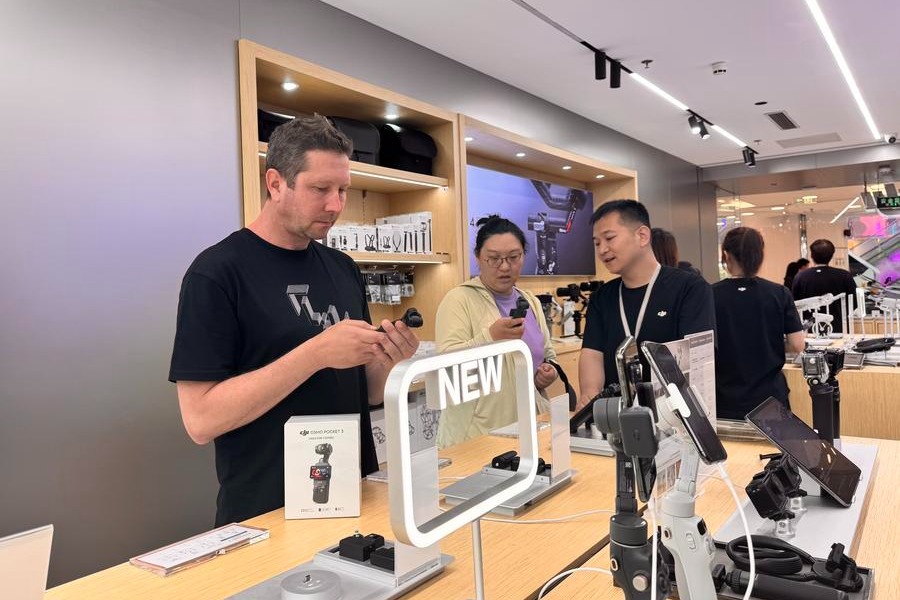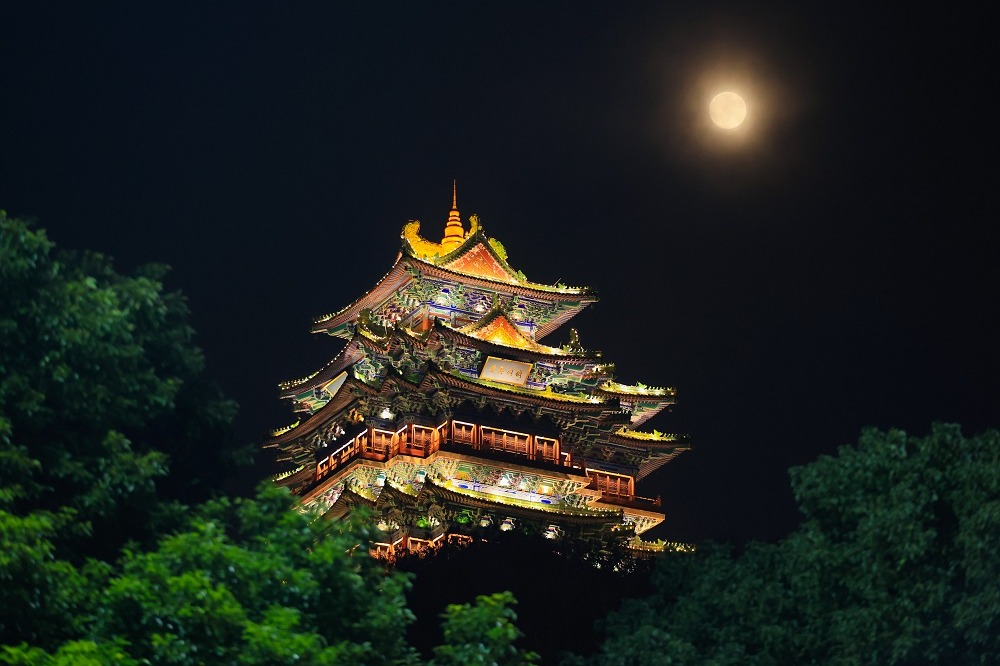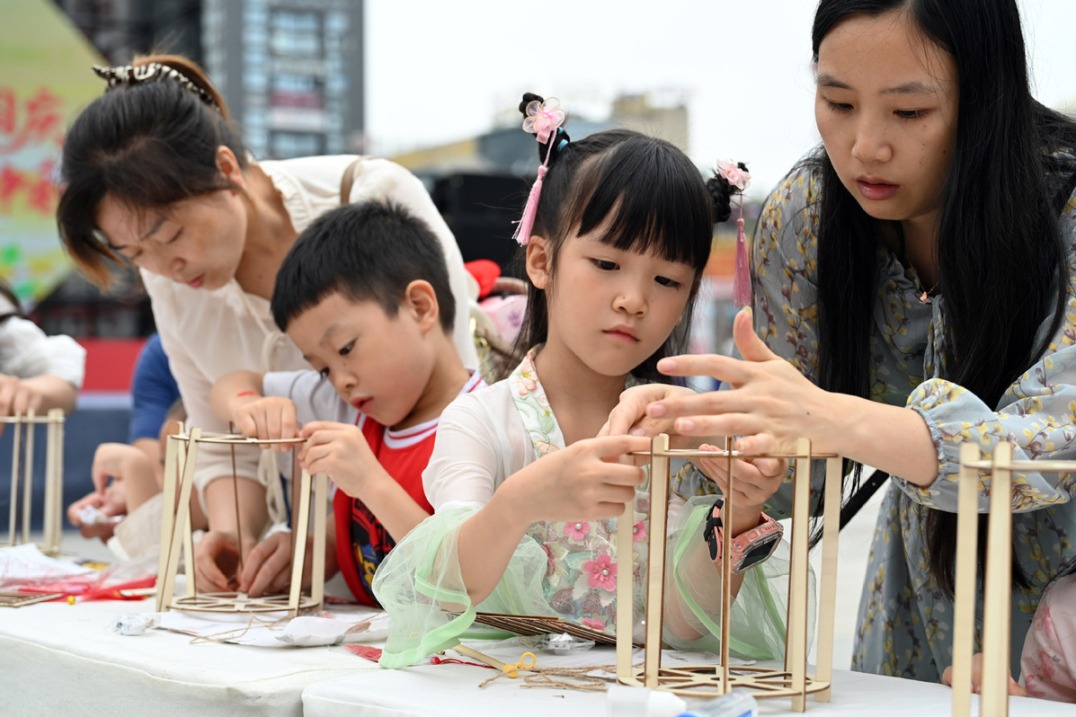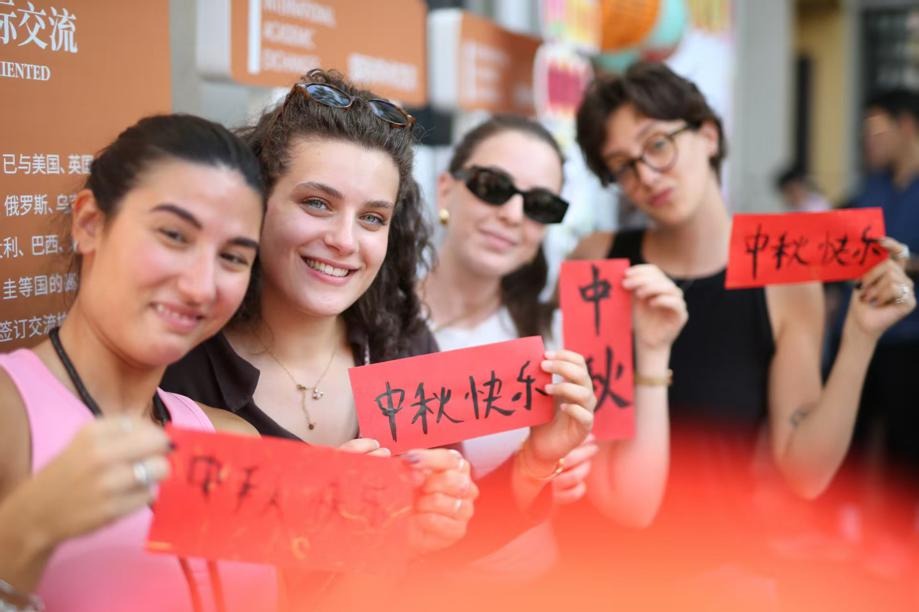Tangled in debates, AI makes an entry to salons

As artificial intelligence seeps into the service sector, residents of major Chinese cities are now turning to a novel option: unmanned hair washing. The "AI" technology that offers convenience, particularly for introverted customers, has sparked debate among industry professionals who have expressed concerns about safety and marketing of the machines, which operate with basic automation, as AI.
Debuting in Shenzhen, Guangdong province, the "AI-powered hair washing machines" have since appeared in areas such as Fujian province, Shanghai and the Guangxi Zhuang autonomous region.
Customers lie on a massage bed and place their heads in the machine, which uses infrared sensors to guide water jets through a roughly 20-minute process. The automated procedure includes several rinses, rounds of shampoo and an application of conditioner.
A 26-year-old internet worker surnamed Chen, who tried the hair washing service at a shop in Shenzhen after waiting in line for 25 minutes, described it as "a cost-effective and novel experience".
"For a trial costing only 9.9 yuan ($1.37), I was surprised by how the varying intensities and angles of the water jets could create such a pleasant scrubbing feeling," he said. He added that the minimal assistance from a shop employee — who conducted a scalp assessment before the wash and guided him to a vertical hair dryer afterward — contributed to his overall comfort.
"Compared to conventional methods, AI hair washing reduces labor costs and passes on the savings to customers through discounts, attracting people of all ages. It's especially suitable for those without styling needs," said Bai Yali, who has worked in the salon industry for six years and opened Fujian's first "AI" hair washing shop in Xiamen last month.
With a dedicated hair care area in the back, Bai said her store serves about 50 to 60 customers daily, allowing her to recoup her investment within a month.
But not everyone is convinced of the benefits of having such machines.
Mao Ge, a salon owner in Nanjing, Jiangsu province, said he first heard about the machines two years ago, but remained skeptical due to safety concerns. Some users have posted online complaints about inadequate rinsing and allergic reactions on sensitive scalps.
Luo Xueming, chief expert at the Guangdong Modern Urban Industrial Technology Research Institute, said the rise in popularity of the service is "both an attempt to empower traditional industries with technology and an epitome of capital chasing after trends".
He warned that the business model remains fragile. Its long-term viability, he said, hinges on moving beyond the machines' basic automation toward smarter algorithms that adapt to real-time user data. He also cited concerns about a lack of unified industry standards, rapid expansion and marketing hype, all of which could lead to overcapacity and eroded consumer trust.
"The essence of AI hair washing lies not in replacing manual labor, but in finding a balance between technological efficiency and human initiative," Luo said.
He called for collaboration between manufacturers of the machines and dermatologists for clinical case studies.
limenghan@chinadaily.com.cn
- Shanghai's Huaxin town showcases rural revitalization efforts
- Taiwan residents flock to mainland during holiday season
- National Day holiday box office exceeds 1.6b yuan
- China rushes farm machinery to key grain belt as rain threatens harvest
- Xinjiang scenic area suspends hiking after heavy snowstorm
- Typhoon Matmo weakens after hitting South China's Guangxi, relief efforts underway





































